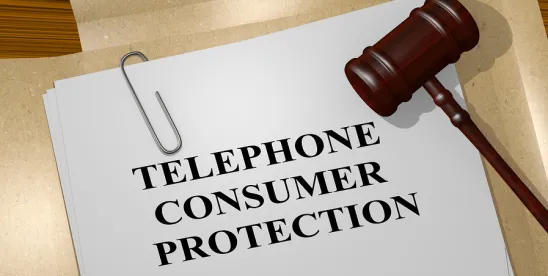Well that didn’t take long.
Yesterday the court in Keifer v. Hosopo Corp., Case No. 3:18-cv-1353, 2018 U.S. Dist. Lexis 183468 (S.D. Cal. Oct. 25, 2018) issued the first ATDS decision in the country relying on Marks. Not surprisingly the Court found that the allegations of ATDS usage contained in the complaint before it survived the Defendant’s 12(b)(6).
In Kiefer the complaint alleged Defendant made 14 unsolicited calls to his cellular phone. It also alleged that the calls were made using an ATDS and an artificial or prerecorded voice, although no factual enhancements were alleged to demonstrate the functionalities of the equipment used to make the calls.
Defendant moved to dismiss including “five pages of briefing to discussing the case law and history surrounding the definition of an ATDS.” Keifer at *9. This, the court concludes, was a waste of keystrokes:
Defendant’s position that the dialing system at issue must create or develop numbers on its own is not supported by a recent Ninth Circuit decision published after briefing was submitted.
Keifer at *9.
Indeed.
As Keifer views Marks: “The Ninth Circuit read “§227(a)(1) to provide that the term automatic dialing system means equipment which has the capacity – (1) to store numbers to be called or (2) to produce numbers to be called, using a random or sequential number generator — and to dial such numbers.” Thus, under this authority an ATDS need not create or develop the numbers dialed on its own.” Keifer at *10. (Emphasis Added)
After recognizing the breadth of the Marks formulation, the Court does not waste time analyzing whether or not the allegations of the complaint are technically sufficient–the Court concludes that the dialer used to placed the calls certainly stored and dialed numbers based upon “judicial experience and common sense.” Keifer at *10. It concludes:
For the foregoing reasons, the Court has concluded that Plaintiff has either adequately alleged the elements necessary to state a TCPA claim, or stated enough facts from which a plausible inference can be drawn the Defendant was responsible for the calls being made to Plaintiff.
Keifer at *10.
Notably, Keifer was decided by the Hon. Cathy Ann Bencivengo of Romero fame. Judge Bencivengo is certainly no fan of TCPA claims and the fact that even she swiftly applied Marks and rejected the Defendant’s 12(b)(6) motion should serve as clear notice to defendant’s contemplating similar motions in the Ninth Circuit’s footprint: don’t try it.
Additionally, and in a perfect nod to my piece from last night, the court also refused to strike the Plaintiff’s failsafe class allegations with virtually no analysis: “At this stage of the proceedings, the Court cannot say that the class claims are unsuitable for class treatment.” This is true although the class alleged was a classic failsafe: all individuals called where “such person had not previously consented to receiving such calls….” Really unfortunate stuff.



 />i
/>i

